University of California San Francisco
Give to UCSF-
-
Chance Collaboration Yields an Advance in Cancer Treatment
-
Immune-Cell Population Predicts Immunotherapy Response in Melanoma
The abundance of a subtype of white blood cells in melanoma tumors can predict whether or not patients will respond to a form of cancer immunotherapy known as checkpoint blockade, according to a new study led by UCSF researchers and physicians.

-
Childhood Cancer Hijacks Cellular Quality Control System to Fuel Growth
A serious childhood cancer takes advantage of a quality control mechanism that usually protects cells from stress-induced damage to propel tumor growth, according to a new study led by researchers at UC San Francisco and the University of Pittsburgh.

-
Go-Between Immune Cell is Key to Priming the Body’s Fight Against Cancer
Using advanced imaging technology that allowed them to spy on interactions among cells in the lymph nodes of living mice, a research team led by UCSF scientists has identified a cell that is a key player in mounting the immune system’s defense against cancer.

-
Covert Inflammation May Trigger Many Forms of Cancer
A previously unidentifiable type of low-grade inflammation may explain why common anti-inflammatory drugs such as aspirin have shown promise against some types of cancer – even when patients don’t display typical signs of inflammation.
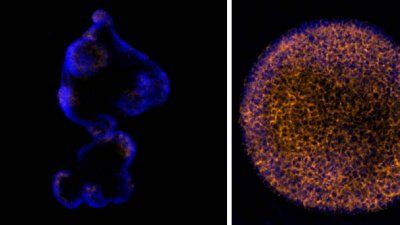
-
UCSF Proposes Breast Cancer Initiative for White House's Cancer Moonshot
Three UCSF faculty members participated in the White House Cancer Moonshot Summit, at which the University of California committed to a new transformative model for health care delivery for breast cancer patients.
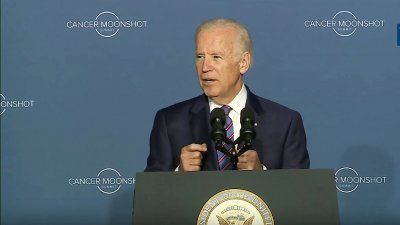
-
UCSF Researcher Part of Consortium Awarded $7.5M to Evaluate Breast Imaging Strategies
Karla Kerlikowske is part of the team awarded $7.5 million by the Patient-Centered Outcomes Research Institute board of governors to determine the effectiveness of two supplemental breast screening and diagnostic workup strategies.
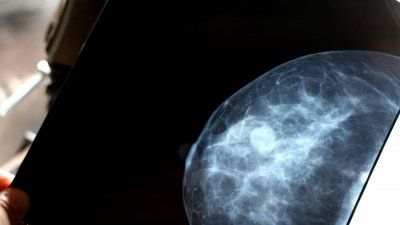
-
A Slight Increase in Pediatric Cancer Risk Seen with Infant Phototherapy
Phototherapy, increasingly used to treat jaundiced infants, could very slightly raise the risk of pediatric cancers, particularly myeloid leukemia, according to epidemiological research published, online Monday, May 23, in Pediatrics.
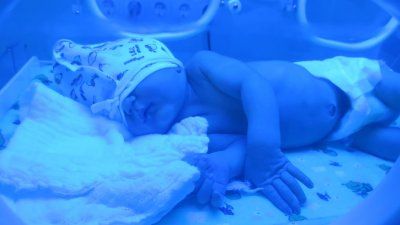
-
Better Survival for Colon Cancer Patients with Left-Sided Tumors
A national study led by a UCSF oncologist has found that patients with metastatic colon cancer that develops on the left side of the colon survive significantly longer than those with cancer that develops on the right side.

-
Hybrid Cancer Drug Could Be Resistance-Resistant
A team of cancer researchers led by scientists at UCSF and Memorial Sloan Kettering Cancer Center in New York have developed a first-of-its-kind hybrid drug with the power to outsmart drug-resistant cancers.

-
Bold Innovation Program Fast-Tracks Precision Medicine Research
Exciting advances in medicine and health are being researched in precision medicine projects recently funded by the George and Judy Marcus Program in Precision Medicine Innovation.

-
Laura Esserman Named to TIME 100 List of Most Influential People in the World
Time magazine has named internationally renowned breast cancer oncologist Laura Esserman to the 2016 TIME 100, the magazine’s annual list of the 100 most influential people in the world.
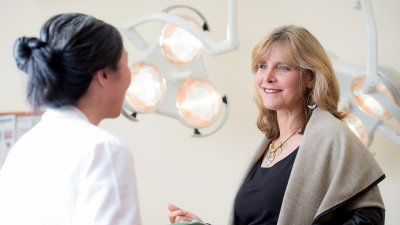
-
New UCSF Center for BRCA Research Expands Care for Increased Cancer Risk
The new UCSF Center for BRCA Research – which spans basic and translational research, clinical care and education – provides a one-stop resource for patients and individuals who carry BRCA1 and BRCA2 mutations.

-
Gene Mutation Makes Tumors Tense, Worsens Patient Prognosis
UCSF researchers have discovered that the chances of survival for patients with pancreatic adenocarcinoma (PDAC) — the most common type of pancreatic cancer — may depend in part on how tense their tumors are.

-
New Cancer Immunotherapy Clinic Offers Unique Studies of Promising Treatments
Oncologist Lawrence Fong is leading UCSF’s newly launched Cancer Immunotherapy Program, a clinic and laboratory dedicated to developing and studying cutting-edge immunotherapy treatments.
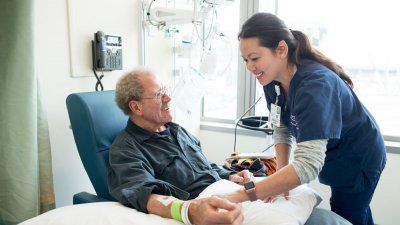
-
UCSF Immunologist to Head New Parker Institute for Cancer Immunotherapy
Renowned UCSF immunologist Jeffrey Bluestone, PhD, has been named president and CEO of the Parker Institute for Cancer Immunotherapy, a national initiative launched with a $250 million grant from The Parker Foundation, established by Silicon Valley entrepreneur Sean Parker.
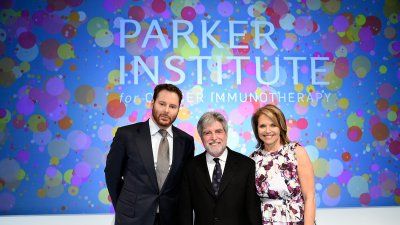
-
Bruce Alberts Named American Association for Cancer Research Fellow
Bruce Alberts has been named one of the 11 newly elected fellows of the American Association for Cancer Research.
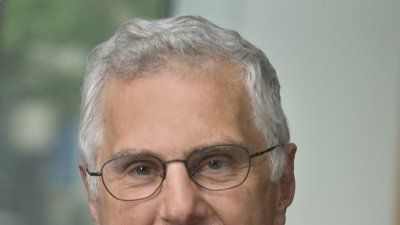
-
Berger, Bluestone Named to White House Cancer Moonshot Expert Panel
Mitchel Berger and Jeff Bluestone have been named to a Blue Ribbon Panel of scientific experts, cancer leaders and patient advocates that will help to guide the National Cancer Moonshot Initiative.
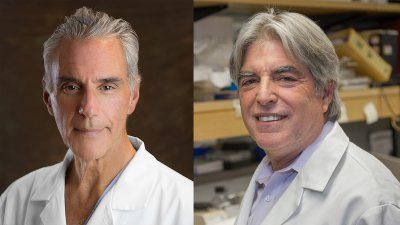
-
Cancer Center Awards First ‘Impact Grants’ for High-Risk, High-Reward Projects
Eleni Linos and Stephen Francis have been awarded the first UCSF Cancer Center Impact Grants, to pursue high-risk, high-reward research projects that would’ve been unlikely to be funded through conventional mechanisms.
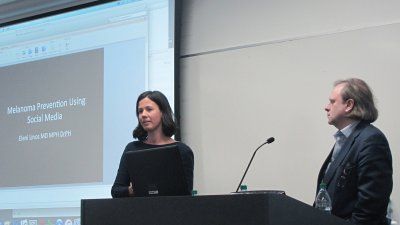
-
UCSF Research Suggests New Model for Cancer Metastasis
Scientists at UC San Francisco have been able to directly observe, for the first time, how invasive cancer cells create a beachhead as they migrate to the lung in a mouse model of metastatic cancer.

-
UCSF Establishes Quantitative Biosciences Institute
UCSF announced the establishment of the Quantitative Biosciences Institute (QBI), to drive forward the application of computation, mathematics, and statistics toward a deeper understanding of complex problems in biology.
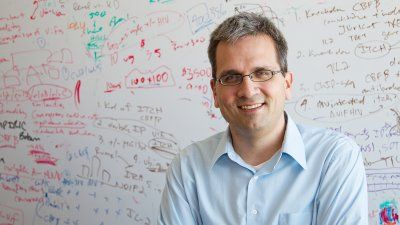
-
Carter Cancer Announcement Shines Brighter Light on ‘Miracle’ Treatments
-
Triple-Negative Breast Cancers Depend on Fat as Fuel, Research Shows
The most intractable common form of breast cancer might in most cases be treatable by drugs that target fat metabolism, according to UCSF researchers.

-
Trever Bivona: Finding the Pathways to Better Cancer Treatment
Life-or-death verdicts in cancer often result from the ways microscopic kinks and folds in proteins fit together within a tumor cell. While in college, Trever Bivona was fascinated by the idea that a single protein’s twists could determine the trajectory of the disease.
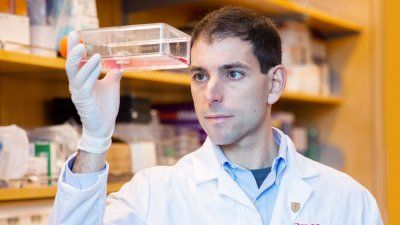
-
Joe Biden, Wife Hold Cancer Roundtable at UCSF
-
VP Joe Biden Visits UCSF to Advance National Cancer Moonshot Initiative
Vice President Joe Biden and his wife Jill Biden visited UCSF to meet with top cancer experts as part of the National Cancer Moonshot initiative to develop new approaches that fast-forward the development of novel therapies.

-
Using Big Data to Chart Cancer’s Hidden Genetic Weaknesses
UCSF researchers are using big data to find cancer treatments by mapping gene networks and screening existing cancer drugs to test their effectiveness against dozens of different cancer gene variants.

-
BRCA Clinics Expand Further Beyond Breast Cancer
-
Mr T-cell